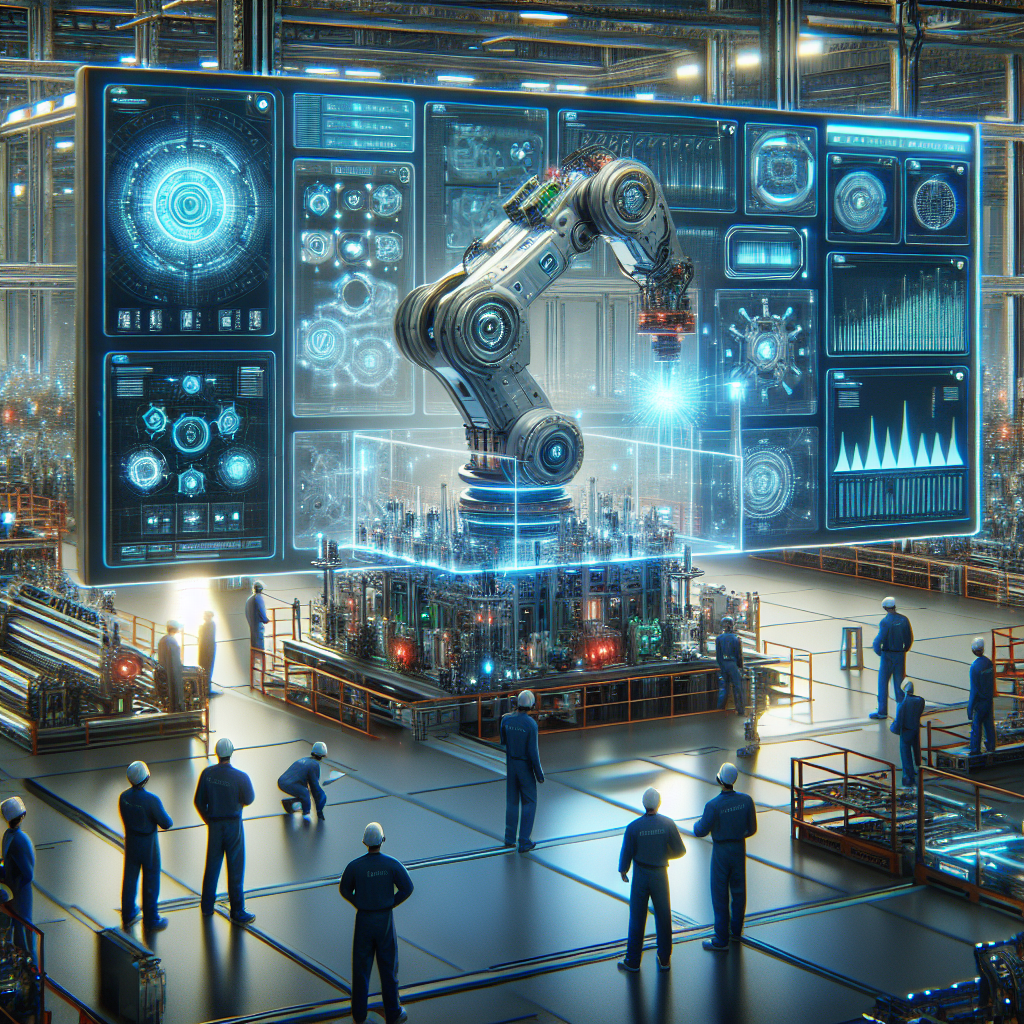In recent years, the manufacturing industry has seen a rapid evolution in the use of artificial intelligence (AI) tools to streamline processes, increase efficiency, and improve overall productivity. From predictive maintenance to supply chain optimization, AI has the potential to revolutionize the way manufacturing companies operate.
Implementing AI tools in manufacturing processes can offer a wide range of benefits, including reduced downtime, improved quality control, and increased production output. By leveraging machine learning algorithms and advanced analytics, manufacturers can make more informed decisions, identify patterns in data, and optimize their operations in real-time.
One of the key areas where AI tools are making a significant impact is in predictive maintenance. By analyzing data from sensors and equipment, AI algorithms can predict when a machine is likely to fail and alert maintenance teams to perform preventive maintenance before a breakdown occurs. This proactive approach can help reduce downtime, lower maintenance costs, and extend the lifespan of equipment.
Another area where AI tools are being implemented is in quality control. By using computer vision and image recognition technologies, manufacturers can automatically inspect products for defects and anomalies, ensuring that only high-quality products are shipped to customers. This not only improves customer satisfaction but also reduces waste and rework costs.
Supply chain optimization is another area where AI tools are proving to be invaluable. By analyzing historical data, demand forecasts, and market trends, AI algorithms can help manufacturers optimize inventory levels, reduce lead times, and improve overall supply chain efficiency. This can lead to cost savings, improved customer service, and a competitive edge in the market.
Overall, implementing AI tools in manufacturing processes can help companies stay ahead of the competition, adapt to changing market conditions, and drive innovation in their operations. However, there are some challenges and considerations that manufacturers need to keep in mind when implementing AI tools. These include data privacy and security concerns, the need for skilled AI talent, and the potential for resistance from employees who may fear job displacement.
To address these challenges, manufacturers should prioritize data privacy and security by implementing robust cybersecurity measures and ensuring compliance with data protection regulations. They should also invest in training programs to upskill existing employees and attract new talent with AI expertise. Additionally, companies should communicate the benefits of AI tools to their workforce and involve employees in the implementation process to alleviate fears of job displacement.
In conclusion, implementing AI tools in manufacturing processes can offer significant benefits in terms of increased efficiency, improved quality control, and streamlined operations. By leveraging AI algorithms and advanced analytics, manufacturers can make more informed decisions, optimize their supply chains, and stay ahead of the competition. While there are challenges to overcome, with proper planning and investment, AI tools have the potential to revolutionize the way manufacturing companies operate and drive innovation in the industry.
FAQs:
Q: What are some common AI tools used in manufacturing processes?
A: Some common AI tools used in manufacturing processes include predictive maintenance algorithms, computer vision technologies for quality control, and machine learning models for supply chain optimization.
Q: How can AI tools help manufacturers improve efficiency?
A: AI tools can help manufacturers improve efficiency by analyzing data, identifying patterns, and optimizing processes in real-time. This can lead to reduced downtime, improved quality control, and increased production output.
Q: What are some challenges manufacturers face when implementing AI tools?
A: Some challenges manufacturers face when implementing AI tools include data privacy and security concerns, the need for skilled AI talent, and resistance from employees who may fear job displacement.
Q: How can manufacturers address these challenges?
A: Manufacturers can address these challenges by prioritizing data privacy and security, investing in training programs to upskill employees, and communicating the benefits of AI tools to their workforce. Involving employees in the implementation process can also help alleviate fears of job displacement.

